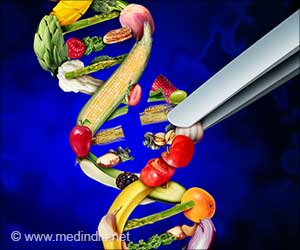China would soon put an end to the practice of harvesting organs from executed prisoners, it has been announced.
China would soon put an end to the practice of harvesting organs from executed prisoners, it has been announced.
Executed prisoners, who perhaps account for more than 65 percent of total donors, ''are definitely not a proper source for organ transplants,'' said Huang Jiefu, vice minister of Health.The rights of death-row prisoners to donate should be fully respected and written consent from them is required, he told China Daily.
The country is believed to conduct more judicial executions than all other countries combined; Amnesty International put the 2008 tally at 1,718.
Prisoners sentenced to death undergo extensive blood tests for matching with potential organ recipients and are given injections to inhibit blood clotting and other treatments to improve the chances of successful transplants. After execution, the bodies are usually stripped of corneas, livers, kidneys and other organs.
Now the Health Ministry is promising to put in place a nationwide organ transplant system that would enable the country to move away such abhorrent practices.
The new system, operated mainly by the Red Cross Society of China with assistance from the Ministry of Health, will begin as pilot projects in 10 provinces and cities. The Red Cross would encourage post-death organ donations among the public, receiving donor registrations, keeping a database, starting a fund to provide financial assistance for needy, surviving families of donors and overseeing the allocation of donated organs according to set principles.
Advertisement
The late, famous Chinese actor Fu Biao received two liver transplants within several months in 2005, raising doubts about the fairness of organ allocation, given that the waiting time for the general public can be years - even if one is lucky enough to get a match, let alone have a second surgery.
We welcome the emphasis put on fair practice in organ procurement, allocation and transplant, echoing the WHO guiding principles on transplantation,'' said Luc Noel, coordinator of clinical procedures in the essential health technologies department at World Health Organization headquarters in Geneva.
''China is establishing the national network and authority necessary to initiate and maximize organ donations from deceased donors and thus progress towards the global mainstream in organ donation and transplantation,'' he said.
China issued an organ transplant law in 2007 that bans organ trafficking and only allows donations from living people to blood relatives and spouses, plus someone considered ''emotionally connected.''
However, organ middlemen have been faking documents in order to make a person who is desperately in need of money be considered ''emotionally connected'' to the recipients, reports said.
Qian Jianmin, chief transplant surgeon with the Shanghai Huashan Hospital, said hospitals performing transplants not only treat patients getting organs from executed prisoners, but have to deal with other levels of government, including the Justice department.
''Corruption can arise during the process,'' he said.
Some just ignore legal procedures regarding organ donations from executed prisoners and make a fat profit, Huang said.
All costs are passed on to patients. Sometimes the recipient pays up to 200,000 yuan ($29,000) for a kidney, not including other medical services.
Currently about one million people in China need organ transplants each year while only 1 percent receive one, official statistics show.
Only about 130 people on the mainland have signed up to donate their organs since 2003, according to research on the promotion of organ donation after death by professor Chen Zhonghua with the Institute of Organ Transplantation of Tongji Hospital.
It is only a modest beginning now for the revamp and it could take more than two decades for the system to cover the huge nation, experts said.
Source-Medindia
GPL/L







